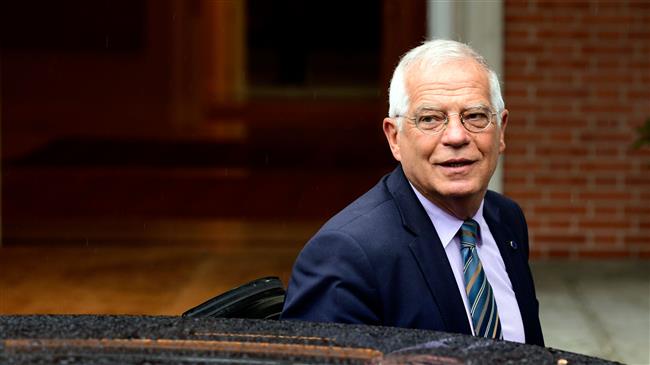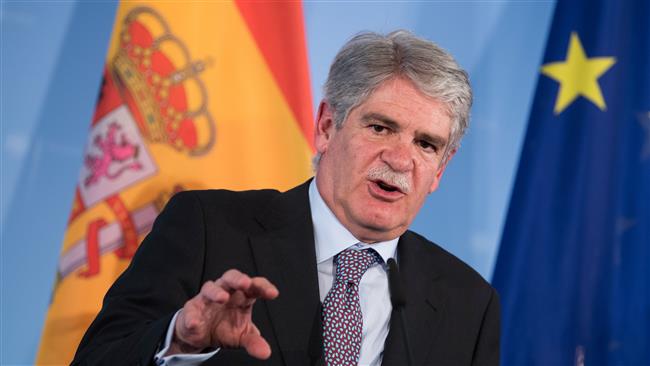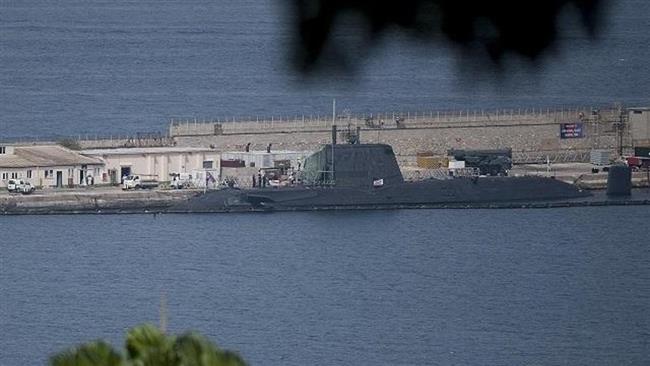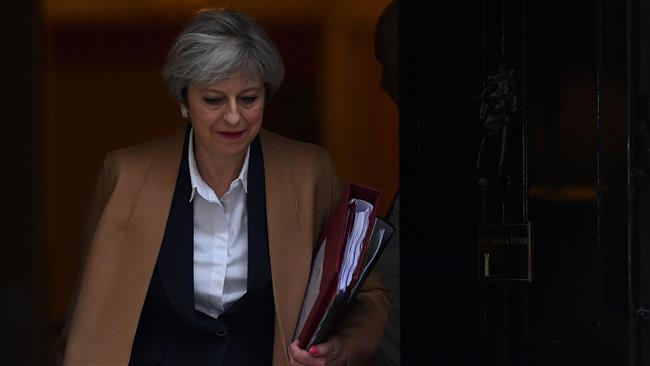Spain warns it could reject Brexit deal over Gibraltar
Spanish Foreign Minister Josep Borrell has threatened that his country could torpedo Britain’s agreement for withdrawing from the European Union because it still fails to mention that Madrid would have the right to independently discuss the future of Gibraltar with London after Brexit.
“The negotiations between Britain and the EU have a territorial scope that does not include Gibraltar, the negotiations on the future of Gibraltar are separate discussions,” said Borrell on Monday.
The top Spanish diplomat said that unless a Brexit deal between London and Brussels made it clear that Gibraltar’s future would be up for discussion outside the EU's jurisdiction after Brexit, Spain would not support the agreement.
“This is what needs to (be) made clear, and until it is clarified in the withdrawal agreement and in the political declaration on the future relationship, we cannot give our backing (to the deal),” said Borrell as he was in Brussels to attend an EU ministerial summit for endorsing the draft Brexit agreement.
EU leaders are expected to give their final approval to the Brexit deal in a special summit on Sunday. Spain has for long opposed Britain’s sovereignty on Gibraltar, a small peninsula on Spain’s southern coast which became British territory in 1713.
Spanish authorities said last week that it would be positive for residents of Gibraltar that Britain and the EU included a protocol on the territory in the draft Brexit agreement.
Some 96 percent of Gibraltar’s population voted in the 2016 Brexit referendum to remain in the EU. However, the peninsula should leave the bloc along the United Kingdom on March 29, 2019.
EU sources have defended Spain’s claims about the need for Britain to renegotiate Gibraltar’s status after Brexit.
One diplomat said Monday that the issue could even be raised during the EU’s November 25 summit. Another EU official said Spain had accepted Britain’s position on Gibraltar in 1986 when the peninsula was joining the EU more than a decade after London’s accession to the bloc. The official said it was now Britain’s turn to accept that “the tables have turned.”
VIDEO | ‘Protect the Right to Protest’ rally held outside London court
Trump denies rift with top officer over potential Iran aggression
VIDEO | Gaza bakery supports displaced families ahead of Ramadan Iftar
France blocks US ambassador from ministerial meetings after summons no-show
Around 20 govts. warn Israel secretly annexing West Bank
Iran pursuing broader cooperation with African nations: Pezeshkian
Israeli minister threatens to seize entire Gaza if Hamas refuses to disarm
VIDEO | Gaza teacher starts ‘Little Wings’ initiative to bring joy to kids














 This makes it easy to access the Press TV website
This makes it easy to access the Press TV website